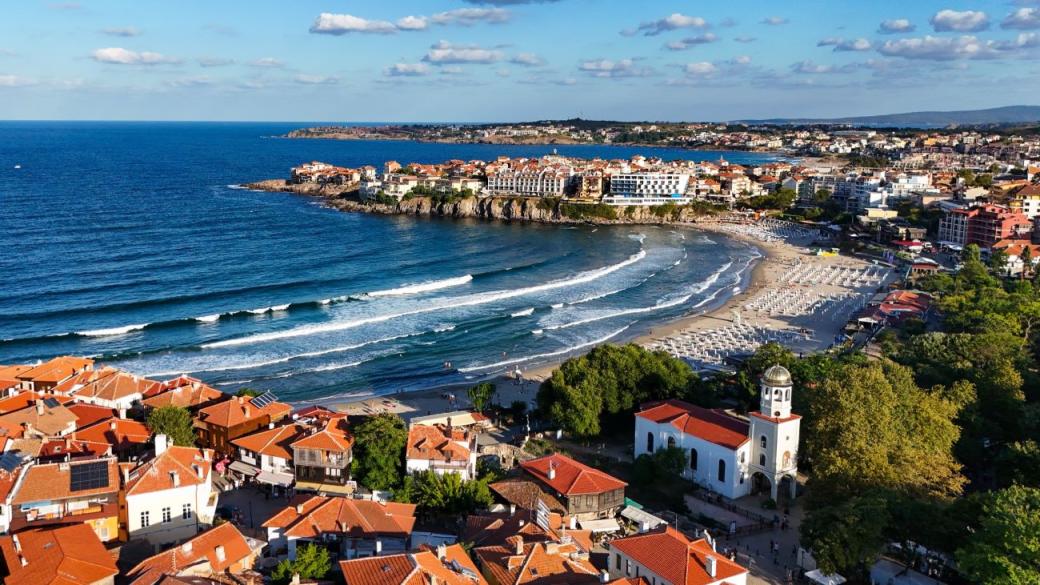“Quality is key”: Will the euro bring more foreign tourists to Bulgaria?
This summer, the tourism industry will once again rely on visitors from its traditional markets, including Israel and Russia

© ECONOMIC.BG / BTA
This week, the doors to the eurozone opened for Bulgaria after the European Commission and the European Central Bank (ECB) published positive convergence reports. Even before that, however, a number of economists and experts said that the introduction of the euro in the country would only bring economic benefits to various sectors, especially tourism.
This view was also expressed by the managing director of the International Monetary Fund (IMF) Kristalina Georgieva, who, after a meeting with Prime Minister Rosen Plevneliev, said that “membership in the eurozone is an excellent opportunity for Bulgaria.”
There are key benefits to the euro, such as Bulgaria's higher investment attractiveness, which is important for all sectors, especially tourism,” Georgieva said at the time.
However, experts in the field point out that the reality is different and that the euro itself will not lead to spectacular positive results, apart from the obvious ones, namely the elimination of currency exchange costs. This is a “significant relief” that will also allow comparisons to be made of how much things cost.
However, the quality of the tourist product is more important.
We cannot claim that joining the eurozone will, in itself, bring more tourists if we do not work on the quality of the tourist product. That is the key," said Rumen Draganov, director of the Institute for Analysis and Assessment in Tourism, in a comment for Economic.bg.
According to him, if tourists come from new markets (such as Northern Europe), they will come not because of the euro, but because of the quality. Otherwise, tourism has so far been driven by travelers who are already familiar with what Bulgarian hotels and restaurants have to offer.
Expectations for Summer 2025
After last summer's bankruptcy of German tour operator FTI Group—the third largest in Europe and a medium-sized player on the Bulgarian market—raised concerns about the impact on Summer 2024, Draganov pointed out that expectations for this summer season are in the opposite direction.
The Institute forecasts a 40% increase in visitors from Germany, reaching pre-pandemic levels.
Otherwise, the traditionally strong markets for Bulgaria are North Macedonia, Romania, Germany, and the UK.
These markets are traditional for us, and we are also seeing growth from the UK,” Draganov noted.
According to him, the Israeli market is also recovering despite political uncertainty.
"The interest is very high. Climate change and the heat there are driving large groups of tourists who are well acquainted with Bulgarian tourism products to travel here," the expert added.
His opinion is shared by Dimitrina Goranova, deputy chair of the Association of Bulgarian Tour Operators and Travel Agents (ABTTA).
In an interview with BTA, she said that if there is growth in tourism this summer, it will come from the main traditional markets, but the Israeli market is “recovering, and it is quite significant for the summer season.”
From Turkey and Serbia to Bulgaria
It turns out that despite the war in Ukraine and sanctions against Russia, there are still Russian tourists in Bulgaria. However, they are coming via Istanbul or Belgrade.
We have tourists from Russia. These are people who have interests in Bulgaria and have families, businesses, and second homes," added Draganov.
Bulgarians are away from home more than 10% of the time
According to Draganov, Bulgarian tourists make a significant contribution to the summer season.
Every year, there are around 25 million trips by Bulgarians to Bulgaria, with summer being the busiest period. The Black Sea coast relies heavily on the Bulgarian market," added the expert.
According to him, there is no change in the vacation culture of Bulgarians. For example, the trend toward shorter but more frequent vacations is not new, but has been around for several years. “Trips have become short, which is why there is such heavy traffic during the weekend,” he added.
People travel intensively. Bulgarians travel 6.8 times a year, which is time spent away from home," said Draganov.
Translated with DeepL.

 Simona Gotsova
Simona Gotsova 
